The groundbreaking ceremony is a spiritual ritual that cannot be missed when building a house in Vietnamese culture. Therefore, it is essential to prepare the offerings meticulously. Today, let’s explore the full and detailed offerings for a housewarming ceremony with five types of fruits!
1 The Significance of the Five Fruits Offering
In Vietnamese culture, the number five is considered auspicious and is often included in traditional rituals. Specifically, the five fruits offering, whether for a housewarming or other ceremonies, symbolizes the five blessings: Longevity, Nobility, Prosperity, Health, and Peace.
In the context of a housewarming ceremony, the five fruits offering represents the culmination of human labor, offered as a sign of reverence to the deities.
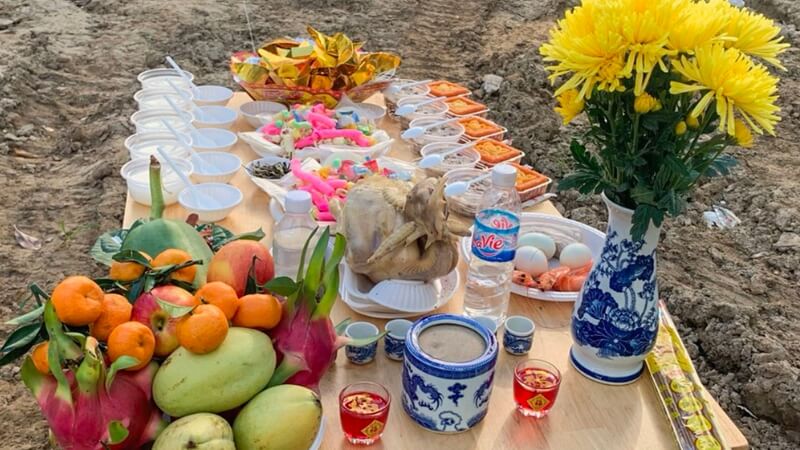 The Significance of the Five Fruits Offering
The Significance of the Five Fruits Offering
2 What are the Five Fruits in the Offering?
Banana – Wood Element (East)
Banana represents the Wood element in feng shui and signifies the offerer’s reverence and wish for a stable and robust home in the future.
 Banana – Wood Element (East)
Banana – Wood Element (East)
Red Peach – Fire Element (South)
The red peach, representing the Fire element, brings good luck and prosperity to the homeowner’s business ventures. It also symbolizes the wish for abundant wealth and success.
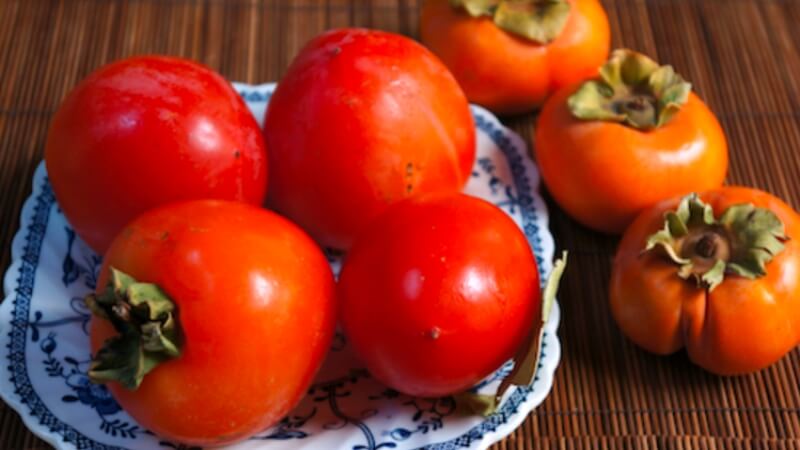 Red Peach – Fire Element (South)
Red Peach – Fire Element (South)
Pomelo – Metal Element (Center)
The pomelo, representing the Metal element, is associated with wealth and prosperity. Its presence in the five fruits offering is believed to attract financial blessings for the homeowner.
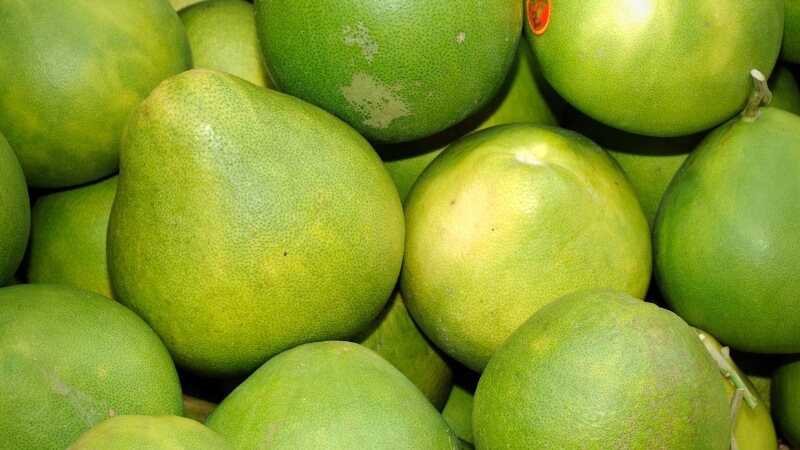 Pomelo – Metal Element (Center)
Pomelo – Metal Element (Center)
Dark-colored Fruits – Earth Element (North)
Fruits with dark colors, such as purple plums, represent the Earth element and symbolize the wish for future growth and development.
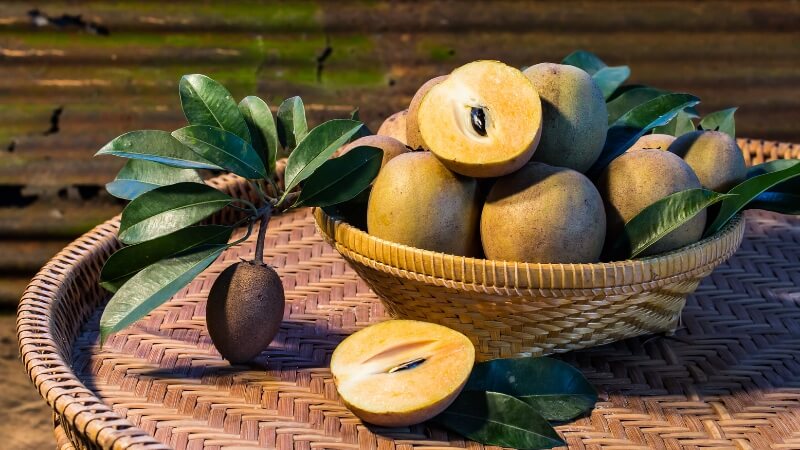 Dark-colored Fruits – Earth Element (North)
Dark-colored Fruits – Earth Element (North)
White Pear – Water Element (West)
The white pear, representing the Water element, is believed to bring good fortune, ease, and harmony to the family members’ endeavors.
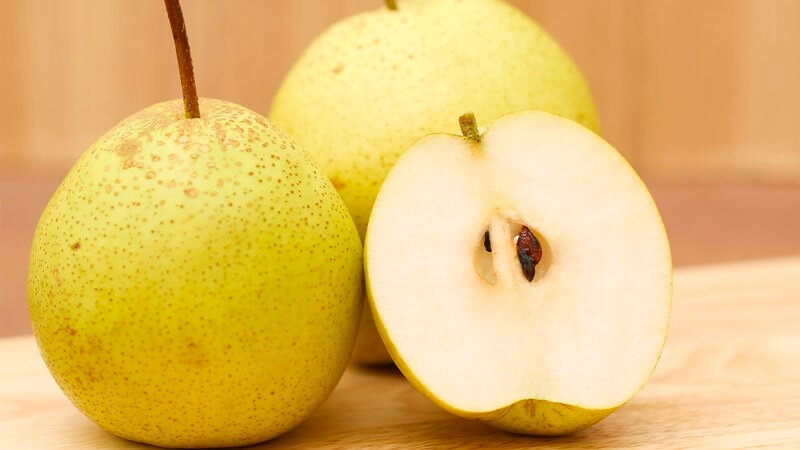 White Pear – Water Element (West)
White Pear – Water Element (West)
While these are the five common fruits in the offering, the specific fruits may vary depending on regional culture. For example, in Southern Vietnam, the offering may include jackfruit, custard apple, guava, dragon fruit, and star fruit, while in the North, it may consist of persimmons, longans, lychees, apples, and peaches.
3 Fruits to Avoid in the Five Fruits Offering
When preparing the five fruits offering for a housewarming or any other ceremony, it is essential to select fresh, undamaged fruits and clean and dry them before arranging them on a plate. Additionally, avoid the following types of fruits:
- Artificial fruits: These lack natural fragrance and are only suitable for decoration, not for offerings, as they do not convey sincerity.
- Fruits with sour, spicy, bitter, or astringent tastes: Fruits like oranges, tamarind, and carambola should be avoided as they are believed to bring unpleasant and bitter experiences to the new home.
- Fruits with sharp spines or rough textures: Fruits like jackfruit and durian have unattractive shapes, detracting from the aesthetic and elegant presentation of the offering.
- Fruits with strong odors: Strong-smelling fruits like durian and mangosteen can overpower the fragrance of other fruits. It is essential to maintain a balance of aromas to symbolize fullness and completeness.
 Fruits to Avoid in the Five Fruits Offering
Fruits to Avoid in the Five Fruits Offering
We hope this information on the five fruits offering for a housewarming ceremony, along with the fruits to avoid, will be helpful to you!
Unveiling the Meaning Behind New Year’s Harvest: Tips for Having Luck in 2021
Celebrating the start of the New Year, many customs and traditions come together in a joyous expression of good fortune. From harvesting the new year’s fortune to praying for fortune and luck, the humanistic meaning behind these practices remains as relevant as ever. But what is the origin and how can we properly partake in the harvest of the new year? Read on to learn more about this fascinating custom.
2023 Seventh Month Kitchen God Offering: Full Details Revealed
2023 marks an important spiritual milestone for many families as the seventh lunar month’s full moon day brings with it the customary worship of the Kitchen God. Find out the specific and intricate steps involved with the traditional Kitchen God worship ritual on the 23rd day of the twelfth lunar month.




































